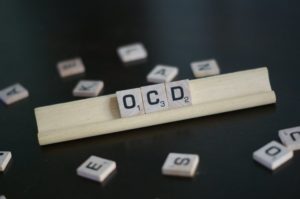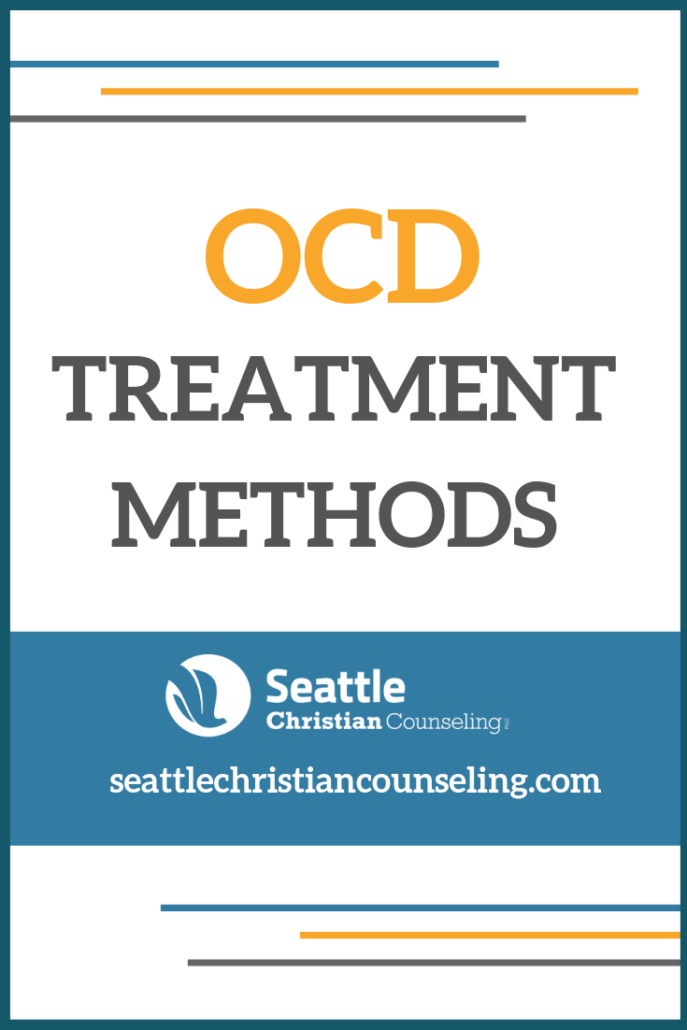Although most people will have heard of OCD, many do not really understand what it is, leading to some misconceptions. This article gives you an overview of what OCD is and what types of OCD treatment are available to you.
OCD Definition
Obsessive Compulsive Disorder is more commonly referred to as OCD. To receive a diagnosis of OCD, someone would need to experience obsessions and compulsions.
An obsession is defined as certain urges, or thoughts, or images that you experience frequently and which you struggle to avoid thinking about. Obsessions are unwanted, and they also cause a great deal of both distress and anxiety when you experience them. San Diego Christian Counseling is here to help you navigate these challenges.
 When someone experiences the intrusive thoughts, images and urges associated with OCD, they try to disregard them, subdue them or in some way neutralize them by replacing them with a different thought or behavior.
When someone experiences the intrusive thoughts, images and urges associated with OCD, they try to disregard them, subdue them or in some way neutralize them by replacing them with a different thought or behavior.
For example, someone with OCD may be consumed by anxiety associated with the thought that they are going to be involved in an automobile accident, or that some tragedy will affect someone they care about.
The replacement actions that someone with OCD uses to neutralize their obsessive thinking are known as compulsions. Examples of compulsions include types of repetitive actions or mental acts. Someone with OCD may repeatedly wash their hands, or be compelled to clean the house constantly or check several times that doors and windows are locked.
Examples of mental acts that are part of OCD include repetitive prayers, repeating words over and over, and counting. Mental and behavioral compulsions are controlled by the obsession that the person has or by certain rules that they believe they have to follow strictly. The person uses the compulsions as a means of reducing anxiety levels or preventing anxiety entirely, or, in some cases, as a means of preventing some awful tragedy from occurring.
The important thing you need to understand about the compulsions is that they are not based on logical or realistic thinking. An example that illustrates this is the way that someone with OCD may be compelled to switch the light on and off three times every single time they leave a room because they believe that this will prevent their house from catching fire.
To meet the diagnosis of OCD, obsessions and compulsions must consume a lot of time – specifically more than one hour each day – as well as have a profound effect on the person’s ability to function normally.
Someone who only experiences obsessions without compulsions, or compulsions without obsessions, or otherwise doesn’t meet the diagnostic criteria, so it is unlikely that they have OCD. They may, however, have another mental health condition. When mental health professionals perform diagnostic interviews, they use the Diagnostic and Statistical Manual (DSM) to differentiate between different mental health disorders.
The DSM contains different diagnoses for each mental health condition; these are helpful suggestions that the mental health professional can use in deciding which diagnosis to make. Other diagnoses, for example, may more closely match what a person is experiencing, or there may be conditions that have very similar symptoms. With OCD, the specific differential diagnoses that the DSM suggests include major depression, anxiety disorders, eating disorders, psychotic disorders, and obsessive-compulsive disorder.

SONY DSC
Although anxiety is a part of OCD, anxiety disorders, including phobias and social anxiety disorder, can be differentiated from OCD because they tend to focus much more on fears of places, situations, and objects, and avoiding the feared things is the means by which they hope to reduce anxiety. There are also other types of obsessive-compulsive type disorders that do not meet the criteria for OCD.
These include body dysmorphic disorder – in which obsessions and compulsions are centered only around physical appearance, trichotillomania – where the compulsion is pulling out hair, and hoarding – in which a person experiences distress concerned with discarding items, even broken items.
Psychotic disorders that involve delusional thoughts and poor insight into the psychosis can resemble OCD but can be differentiated from OCD due to additional psychotic symptoms such as hallucinations. Compulsive-like behaviors, such as addictions to substances, can appear to be compulsions, but substance abuse is something which people find pleasurable, whereas OCD is driven by anxiety and distress.
Although obsessive-compulsive personality disorder sounds close to OCD, it presents in an entirely different way. Instead of intrusive thinking and urges, and repetitive behavior, obsessive-compulsive personality disorder involves dysfunctional levels of perfectionism and strict control over life.
Signs and Symptoms of OCD
Physical symptoms form a part of the presentation of OCD. These include compulsions, ritualistic actions, repeating words, agitation, impulsive actions, and isolating from others. Compulsions can present in a variety of different ways, but these tend to be consistent (the person’s compulsions do not change over time). Compulsions are always, in the mind of the person at least, means of alleviating anxiety.
Someone who has OCD will tend to become agitated if, for any reason, they are prevented from completing the compulsive behavior or mental action. OCD can also be apparent in people who hoard things – but in the case of hoarding, there must be distorted beliefs involved, such as thinking that a tragedy will occur if they have to throw something away.
While social isolation is a common symptom of a number of different mental health conditions, it is also a physical sign of OCD. For example, someone with OCD may isolate themselves socially due to obsessive thoughts about catastrophic events happening if they go outside or travel anywhere. This aspect of OCD can lead to depression in addition to OCD.
People with OCD tend to experience certain mood states more than others. Anxiety, of course, is the primary mood that leads to the compulsions, but anxiety can increase when something happens to prevent a compulsion being completed. This anxiety is usually severe and disabling, and may manifest in both physical and psychological symptoms.
Anxiety associated with OCD can prevent the person from doing the things associated with normal life, including holding down a job, going out for a walk, and even leaving their home. When anxiety is persistent, it can cause panic attacks, especially when a person with OCD cannot complete their compulsive actions.
Guilt is another common problem for people with OCD. For example, a person who has the obsessive belief that their father will become sick if they don’t speak to him every single day will experience guilt if, for whatever reason, they cannot call their father one day and he becomes sick. They will believe, however irrationally, that they are to blame.
 In psychological terms, people who have OCD are affected by depression and intrusive thoughts that they believe they have no control over. While other symptoms of OCD are more obvious to others, these psychological symptoms are less discernible because they are internal.
In psychological terms, people who have OCD are affected by depression and intrusive thoughts that they believe they have no control over. While other symptoms of OCD are more obvious to others, these psychological symptoms are less discernible because they are internal.
That being said, internal feelings can emerge as behaviors such as anger or agitation. When someone with OCD is experiencing these symptoms, it’s important that they feel supported and able to discuss their struggles with friends and family.
What Can I Do About OCD?
If you think that you may be suffering from OCD, it’s best to speak to your doctor about it. Talking with your doctor about the symptoms that you’re experiencing and the way that you are feeling can help you to begin the process of managing your condition.
You may want to discuss with your doctor whether it would be helpful for you to be referred to a psychiatrist. Your doctor may also be able to recommend a therapist who is experienced in working with people who have OCD. Seeing a therapist can be beneficial for helping you manage symptoms and giving you tools to help you cope better with daily life. Another option that can help you is joining a support group, where you can discuss your struggles with other people who experience symptoms of OCD.

Parents of children who have, or are suspected of having, OCD need to offer non-judgemental support to their child, and do their best to try to understand the struggles that their child is experiencing.
You need to understand the levels of anxiety that your child is dealing with, and also appreciate that the obsessions they have may be difficult for them to put into words. While their behaviors may seem irrational and frustrating to you, remember that OCD is a mental illness that your child is not in control of.
You need to be patient with your child and help them to express how they feel about the things that are causing them anxiety. If you suspect your child is experiencing OCD, you should seek help as soon as possible.
Early intervention can give you and your child the support you need to better cope with the symptoms of OCD. Taking your child to a psychiatrist or pediatrician is one means of early intervention; another is to seek the help of a therapist who works with children with OCD.
You should look for a child therapist who has experience in Cognitive Behavioral Therapy (CBT) and Exposure and Response Prevention (ERP). These therapeutic interventions have been shown to be most effective for OCD.
Teachers who observe behaviors and other symptoms that may suggest OCD can discuss their concerns with the school psychologist, who will be able to begin a process of getting help for the child who is struggling.
It is important to remember that a child with OCD isn’t being deliberately disruptive in class, and you should be patient and supportive when dealing with behaviors associated with OCD. The school psychologist should be able to give you guidance on how best to respond to the child with OCD.

What OCD Treatment Options are Recommended?
There are several different OCD treatment options that are commonly used to help manage the symptoms of OCD. These are Evidence Based Treatments (EBT) that have been proven to be effective for people with OCD. The two major OCD treatment methods are Cognitive Behavioral Therapy (CBT) and Exposure and Response Prevention (ERP). These are often used in con junction with support groups.
Cognitive Behavioral Therapy aims to challenge maladaptive thinking patterns and help people to change the way that they feel and behave. For OCD, CBT is effective because it can directly challenge the obsessions that are illogical and irrational. By changing thoughts from the irrational to the rational, people with OCD experience changes in the way that they feel and may not feel so controlled by their behaviors and compulsions.
Exposure and Response Prevention therapy (ERP) is a process by which therapists who have trained in ERP techniques will effectively expose their client to a situation or object that normally causes anxiety and help their client to respond in a different manner – i.e. to respond without engaging in the compulsions. ERP is a treatment that takes time as it can only be done in small increments after the person has developed techniques to control their anxiety.
For example, in a situation where a person believes that if they don’t back in and out of their parking spot three times before they turn off the engine, they will kill someone on their next journey, ERP would first focus on giving the person a range of coping skills.
Then, the therapist would start with something small such as starting the car and then turning it off again without going anywhere. Starting small like this gives the therapist the opportunity to assess anxiety levels and to reinforce the coping skills in order to bring anxiety levels down to a manageable point. In small increments thereafter, the therapist will aim to get the person to be able to pull into a parking spot and immediately turn off the car.
Support groups provide people with OCD the opportunity to meet with other people who understand their difficulties and help them to realise that they are not alone in what they experience. Another benefit is being able to learn coping skills and to have hope for better levels of functioning by seeing how others are better able to manage their symptoms.
Although therapeutic treatments are the most effective for OCD, medication is also an option that can be discussed with your doctor or psychiatrist. Medication is not right for everyone, and your doctor will take individual factors into consideration before prescribing.
Now What?
If you are looking for help in managing your OCD, or are worried about someone close to you who is struggling with OCD symptoms, it is advisable that you consult a doctor who can put you in touch with a therapist experienced in treating OCD. The road to healing is much easier when it is walked in conjunction with a trained professional.
A Christian counselor can help you to heal and be transformed, in conjunction with both God’s presence and your own efforts to challenge your thinking. Secular therapists can also help if you’re not able to work with a Christian counselor due to insurance restrictions. If you’re unsure what your insurance will cover, your provider will be able to give you a list of approved therapists.
Many Christian therapists will offer a risk-free initial consultation, and when you are looking for the right therapist for you, it can be helpful to make several risk-free appointments with different therapists including christian counselors at San Diego Christian Counseling, so you can find the therapist you are most comfortable with.
“OCD”, Courtesy of Airpix, Flickr.com, CC BY 2.0 License; “Venetian Blinds”, Courtesy of Sheila Tostes, Flickr.com, CC BY 2.0 License; “Day 021” Courtesy of Holly Lay, Flickr.com, CC BY 2.0 License; “Sunbeam Landscape”, Courtesy of Lars Nissen Photoart, Pixabay.com, CC0 License
